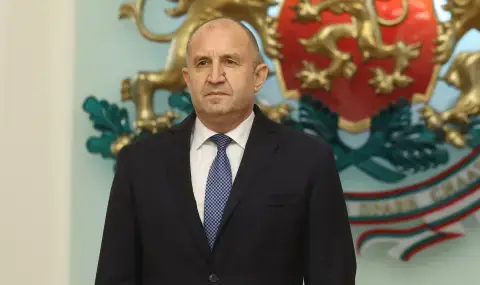When GERB points to Radev as a central opponent, the goal is to build a comprehensive narrative: GERB as a guarantor of European integration and stability, Radev - as a symbol of the blockade. And the dependencies on Peevski are slightly muted.
With the eurozone as its banner and President Rumen Radev as a political opponent, GERB is trying to rewrite its role in politics and governance - not as a party dependent on the oligarch Delyan Peevski, but as a driver of stability and a nationally responsible force. The GERB national conference in Plovdiv looks like a dress rehearsal for the new legitimizing narrative - along with the mobilization of party assets and voters. And suddenly, early elections were called, although for now there is no prospect of such (at least at first glance).
The Eurozone and "Who, if not GERB"
Leader Boyko Borisov and the other speakers recalled GERB's historical path through the crises of the last 20 years as a sign of reliability and consistency, in order to impose the conclusion: “Who, if not GERB, will bring Bulgaria into the eurozone!”. As Borisov put it: “We staked our name on bringing Bulgaria into Schengen and the eurozone. We brought it into the European banking union. And now everything alive is climbing on GERB's back…”.
But somewhere along this “historical” Corporate Commercial Bank (CTB) was once again hit by institutional weaknesses, including banking supervision, and a cover-up from the government. This was precisely the reason why Brussels set an unprecedented condition for Bulgaria - to join the banking union before ΕΡΜ II. In 2018, when this condition became known - along with the role of the European Central Bank as a direct supervisor of the five largest Bulgarian banks, Prime Minister Borisov was not at all pleased. However, this did not prevent him seven years later from presenting the result as a party merit.
However, GERB is undoubtedly trying to capitalize on the eurozone as its own success, in an attempt to distance itself from the co-rule with Peevski and the negatives it brings to the party. It is no longer a secret that the politician, sanctioned for corruption by the US and the UK, directs decisions in parliament, including personnel elections, and dictates to the executive branch. GERB feels the risk that this will damage the European image.
Strategic opponent
Borisov's party is trying to return to its old shoes, from the times when it suggested stability and positioned itself as a guarantor of managerial sustainability. Now it is once again trying to “sell” through political marketing the thesis that it is the only bearer of stability, European integration and “real power”. For the purposes of such a strategy, a political opponent is absolutely necessary - and GERB pointed to President Radev.
The politician with the highest rating is a suitable rival for the largest party. By framing him as the main opponent of the eurozone, Borisov's party presents itself as the only engine of progress, in contrast to Radev's retrograde anti-European face.
“Vazrazhdane” are also anti-European, as are MECH and “Velicie”, but the latter two parties are not in the category of GERB, and with Kostadin Kostadinov's formation, relations are one of mutually beneficial confrontation, with which both parties do not overdo it.
Radev - and his "personal airline"
Obviously, with the approach of the presidential and perhaps early parliamentary elections, GERB is sending a signal of mobilization and unity around European integration, selling voters its “stability” against the “destabilizing” Radev and clearly outlining a confrontational line towards him. GERB MPs have challenged the president to come out on the party field several times, while yesterday Borisov did so in a much sharper tone: “Rumen Radev is simply a political leader of an unfulfilled party. He has been warming up for eight years. He should stop using the presidential institution as a private airline and come out and join us. That's fair“.
By designating him as the leader of the opposition, Borisov is trying to “dethrone” the parliamentary opposition, which still does not have a clear position towards Radev and his party ambitions. For the pro-European PP-DB coalition, the president's Euroscepticism is a problem, but when GERB takes the initiative against Radev, PP-DB finds itself in a difficult position - agreeing with the criticism, but unable to express it without appearing to be Borisov's allies.
GERB, on the other hand, uses “Vazrazhdane” as a convenient scarecrow and will be so in the presidential campaign - in relation to the extreme national populists it positions itself as a reasonable Euro-Atlantic center. For its part, “Vazrazhdane” could consolidate its hard-line electorate through attacks against GERB as “the embodiment of the status quo and the colonial model”. So both sides win.
And the dependencies on Peevski?
In this scheme, President Rumen Radev is a more complex and strategically important opponent - he is institutionally legitimate, has residual influence on the left and stands on the edge between the systemic and the anti-systemic. Therefore, when GERB points to him as a central opponent, the goal is not just a political fight, but the construction of a comprehensive narrative: GERB as a guarantor of European integration and stability, Radev as the hidden anti-European axis and symbol of the blockade.
And the dependencies on Peevski are slightly muted.
This comment expresses the author's personal opinion and may not coincide with the positions of the Bulgarian editorial office and the State News Agency as a whole.
